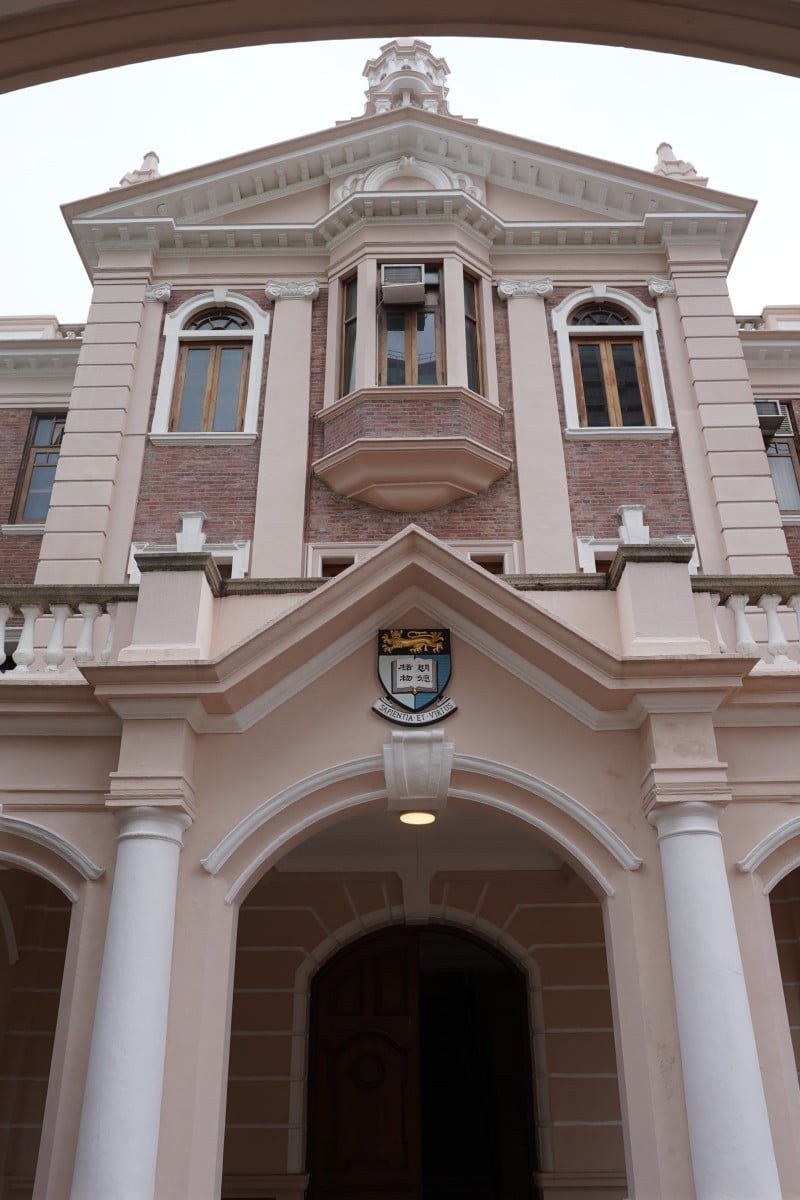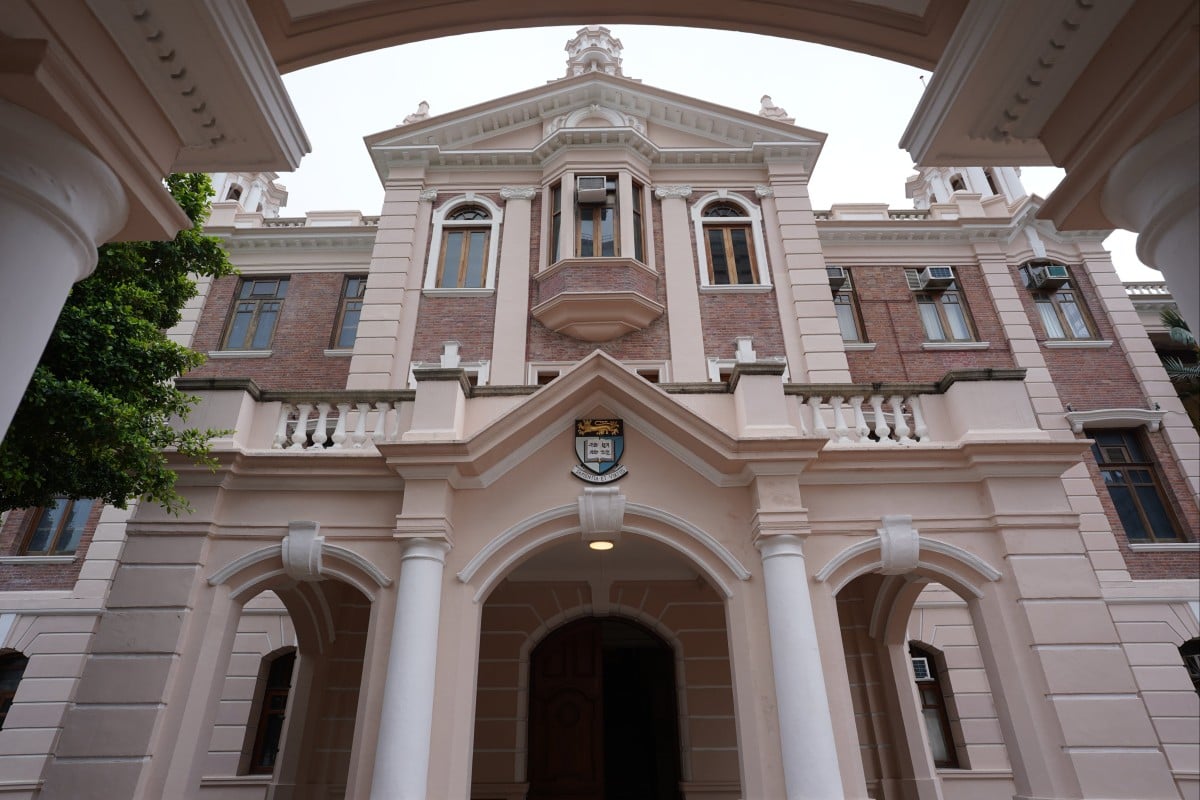
Deep Dive: Hong Kong fights fake qualifications in university admissions
Chief Executive John Lee hopes to strengthen the city’s reputation as a hub for higher education, including through new ‘Study in Hong Kong’ campaign.
 Hong Kong will crack down on those using fake qualifications to apply to university. Photo: Sam Tsang
Hong Kong will crack down on those using fake qualifications to apply to university. Photo: Sam TsangDeep Dive delves into hot issues in Hong Kong and mainland China. Our easy-to-read articles provide context to grasp what’s happening, while our questions help you craft informed responses. Check sample answers at the end of the page.
News: Hong Kong to crack down on forged qualifications for university applications
-
Chief Executive said the city will work with mainland authorities to tackle problem of educational consultants supplying fake credentials
-
Hong Kong aims to strengthen reputation as educational hub, attract more international students through new promotional campaign
Hong Kong’s leader has promised to work with mainland Chinese authorities in a new measure. He hopes to crack down on education consultants supplying forged documents to people seeking admission to local universities.
Chief Executive John Lee Ka-chiu said these bad practices hurt his administration’s policies. He hopes to strengthen Hong Kong as a global tertiary education hub.
Lee announced plans to launch a “Study in Hong Kong” campaign last month during his annual policy address. The brand seeks to promote the city as a centre for higher education.
“There are situations where intermediaries make [dishonest] attempts to make money,” Lee said before a weekly meeting of the government’s key decision-making Executive Council.
“If our law enforcement agencies know about these situations, they will definitely crack down and work with mainland agencies to tackle these illegal activities. But I believe that most of them are law-abiding.”
Hong Kong’s wealth gap widens as elderly poverty increases
Lee said Hong Kong was an attractive place to study in terms of its education quality. He added this was especially true for students from the Middle East and other nations involved in the Belt and Road Initiative (BRI). The BRI is China’s plan to grow global trade.
Meanwhile, Hong Kong’s Chief Secretary Eric Chan Kwok-ki said the government would thoroughly investigate all applications submitted by suspicious educational agencies.
“Once we have sufficient evidence to prosecute and they have been found guilty, their academic qualifications will be revoked,” he said. “Due to the record of conviction, it could be very difficult for them to come to Hong Kong again, even for travelling.”
Chan said that while the number of cases reported to police remained low, they were all thoroughly investigated. The agencies involved would also be carefully checked.
Many of these education consultancy accounts advertise on the Chinese social media platform Xiaohongshu. Several claim they can guarantee enrolment into master’s programmes at HKU, other universities in Hong Kong and elsewhere.
One account claimed that an 800,000 yuan payment (around HK$871,600) could secure a spot for an HKU master’s degree through a “green track”. This track required no proof of academic performance or English-language ability. The agent also promised a full refund if the applicant was rejected.
Question prompts
1. Which of the following statements is false?
(1) Hong Kong hopes to become a hub for higher education.
(2) Chief Executive John Lee thinks most educational consultants are not honest.
(3) People who apply with fake credentials can still keep the qualifications they earn.
(4) Authorities thoroughly investigate reported cases of fake credentials.
A. (1), (2) only
B. (2), (3) only
C. (1), (3), (4) only
D. none of the above
2. Using the news, list TWO reasons why John Lee wants to combat the problem of forged qualifications.
3. According to Chan, what are TWO possible consequences of being caught using fake credentials?
Staff writers
Photo
Question prompts
1. What is being shown in the picture? How does it relate to News and Issue?
2. How do you feel about the use of fake academic credentials to apply to university? Are authorities are doing enough to tackle the problem? Explain using News, Issue and your own knowledge.
Illustration
Question prompts
1. What do you see in the illustration, and what does it represent? How is this related to John Lee’s plans for education in Hong Kong?
2. Do you agree with Lee’s statement that Hong Kong is an attractive place to study? Explain using the news and your own knowledge.
Issue: Mainland student jailed after using fake documents for business school
-
Pupil was sentenced to 17 weeks in prison for using forged credentials from a US university to secure a spot in HKU’s business school
-
Incident has fuelled questions about loopholes in the enrolment system
A mainland Chinese student was sentenced to 17 weeks in prison last month for using a fake certificate from an Ivy League university in the United States and making false representations to immigration officers to get into a top Hong Kong business school.
The business school of the University of Hong Kong (HKU) said in July that about 30 master’s degree students had been caught using fake documents for their enrolment. The number was expected to rise.
Wu Linhui, 24, will be sent back to the mainland after she is released from custody, according to the SCMP.
Her counsel, Simon So, told the Eastern Court that the defendant’s mother wanted her daughter to have a bright future and, therefore, hired an agency to handle the postgraduate application.
The student claimed she was a mathematics graduate of Cornell University while applying to a one-year HKU postgraduate programme in finance in 2022.
She received a conditional offer from HKU and subsequently submitted an application to the Immigration Department for a permit to enter the city to study.
However, in May, the business school reported suspicious cases of students faking their academic credentials in submissions to the police after conducting an internal investigation.
Why Hong Kong’s small and medium-sized enterprises are struggling to survive
Immigration officers stopped her at the Lo Wu border crossing on June 22 and handed her over to police.
The incident has fuelled questions about whether the school’s requirements were lax, including by allowing applicants to submit their own qualification documents.
City leader John Lee warned that law enforcement would take action against those caught using or supplying fake credentials, adding that institutions were responsible for flagging suspected qualifications fraud.
“Universities must also strengthen their own systems in this regard and work harder when sifting through academic qualification applications,” he said.
The Chinese University of Hong Kong, Baptist University and the University of Science and Technology said postgraduate programme candidates were required to submit relevant documents from their previous institutions.
Lingnan University associate vice-president Lau Chi-pang said it was “not rare” for applicants who used fraudulent academic qualifications to secure an offer in tertiary institutions as it involved significant administrative work to cross check.
“Sometimes it really depends on the workload of the admission officers as they may have to check the academic backgrounds of every applicant receiving the offers and contact numerous universities to verify their qualifications,” he said.
He added that universities filed a report once they confirmed a case, citing an instance in which Lingnan University spoke to police after finding more than 10 students had forged their qualifications years ago.
Question prompts
1. List ONE loophole in HKU’s business school admissions process and ONE question it raised.
2. What challenges do universities face in spotting fraudulent qualifications? What can be done to overcome these obstacles? Explain using Issue and your own knowledge.
3. How could these cases of forged documents hurt higher education in Hong Kong? Explain using News, Issue and your own knowledge.
Glossary
“Study in Hong Kong” campaign: an initiative from the Hong Kong government to promote the city as a worldwide centre for higher education and attract overseas students. John Lee announced the plans in his recent policy address.
intermediaries: people or companies who act as a link between others. For example, a person applying for a visa may pay an intermediary to do the work for them.
Belt and Road Initiative: a strategy adopted by the Chinese government in 2013 to connect Asia with Africa and Europe via land and sea. The goal is to improve relationships and encourage regional integration.
Ivy League: a group of eight universities in the US known for their academic excellence and prestige
conditional offer: an offer made on the basis that you meet certain requirements before you can be accepted into your chosen course
Sample answers
News
1. B
2. John Lee wants to tackle the problem of fake qualifications because it hurts Hong Kong’s reputation as a place for high-quality higher education and harms his administration’s policies.
3. Two possible consequences of being caught using fake credentials include having one’s academic qualifications revoked and not being allowed to return to Hong Kong, even for travel.
Illustration
1. The illustration represents Hong Kong’s desire to turn the city into a destination for international students and a place known for higher education. This ties into John Lee’s “Study in Hong Kong” campaign, which seeks to promote the city to overseas students. Cracking down on fake qualifications will also help Hong Kong’s reputation as an academic hub.
2. I think Hong Kong is an attractive place to study because it has students and professors from all around the world. Pupils can have a rich and rewarding experience. They can learn from knowledgeable people and make friends with those from different backgrounds. (accept all reasonable answers)
Photo:
1. The picture shows people walking on the University of Hong Kong (HKU) campus. This is relevant to the news because authorities are cracking down on people using fake qualifications to apply to universities like HKU. In fact, a student from mainland China was recently jailed for using forged documents to secure a spot at HKU’s business school.
2. I think authorities should tackle the use of fake qualifications to prevent unqualified people from getting competitive university spots. Hong Kong students work very hard, and it is unfair for someone to steal a spot from them by cheating with forged documents. The government should be more vigilant in finding fraudsters.
Issue:
1. HKU’s business school allowed applicants to submit their qualification documents themselves instead of requiring them to contact the awarding institutions. This raised questions about whether the school’s requirements were too lax.
2. Checking qualifications requires a lot of administrative work. According to Lingnan University associate vice-president Lau Chi-pang, doing so depends on the workload of admission officers as they may have to check the academic backgrounds of every applicant receiving an offer and contact numerous universities to verify their qualifications. Local universities could hire more administrative officers to verify each application and mandate applicants to submit their certificates and transcripts via their awarding institutions. (accept all reasonable answers)
3. These fraudulent cases could harm the city’s reputation as the incidents have fuelled questions about whether admissions requirements are too lax, especially at HKU’s business school. We must address loopholes in the system, especially when admitting students from mainland China.
Hong Kong’s goal is to establish itself as a global hub for postsecondary education and attract more overseas talent, given the brain drain in the past few years. These cases could deter students from applying to local institutions involved in fake qualifications scandals. Therefore, establishing a better mechanism to verify applicants’ certificates and academic records is paramount to ensure such incidents will not happen again.